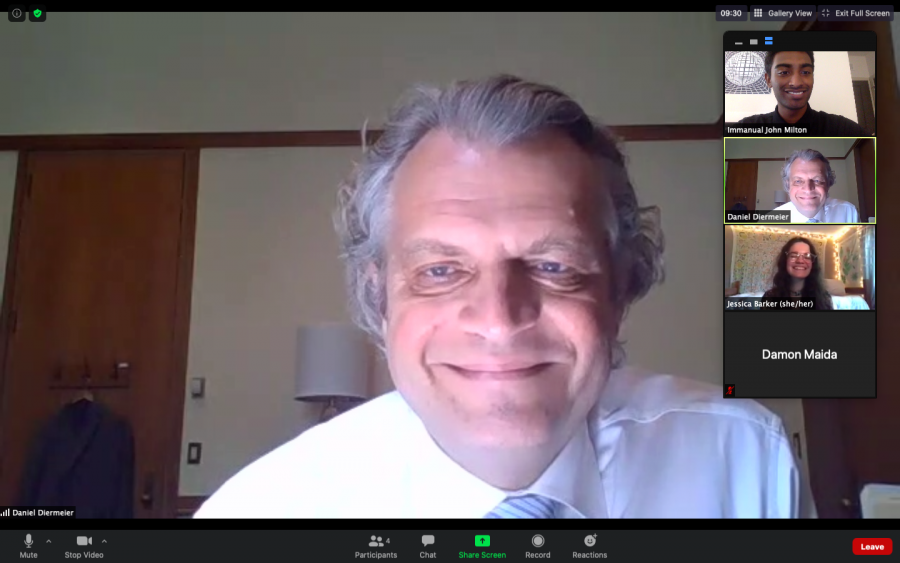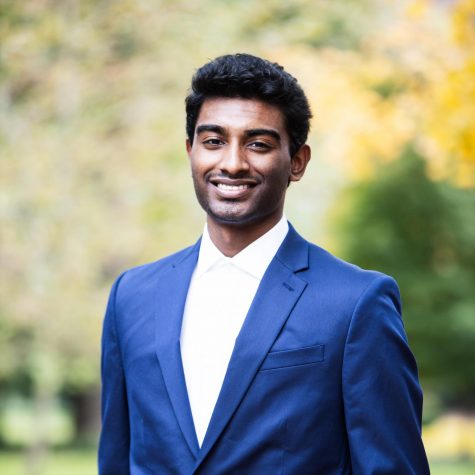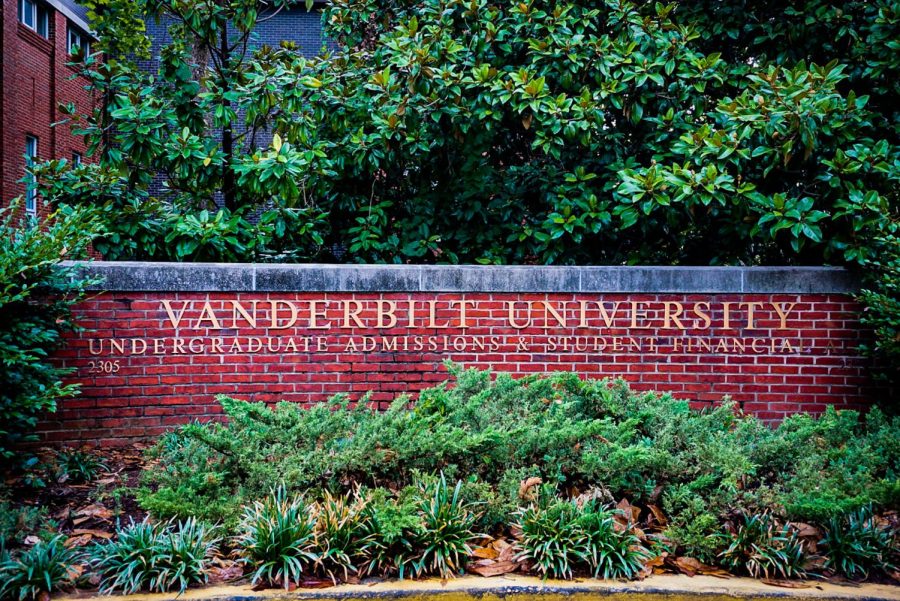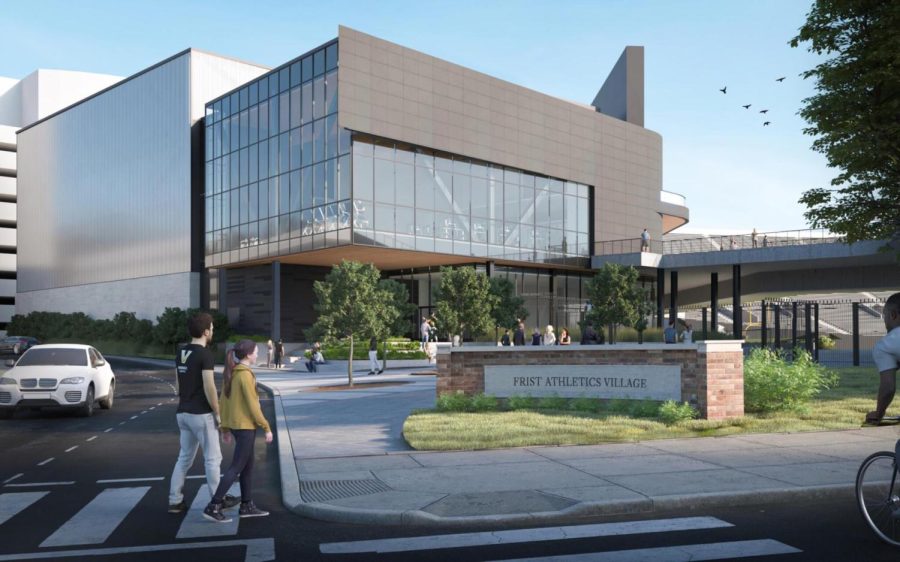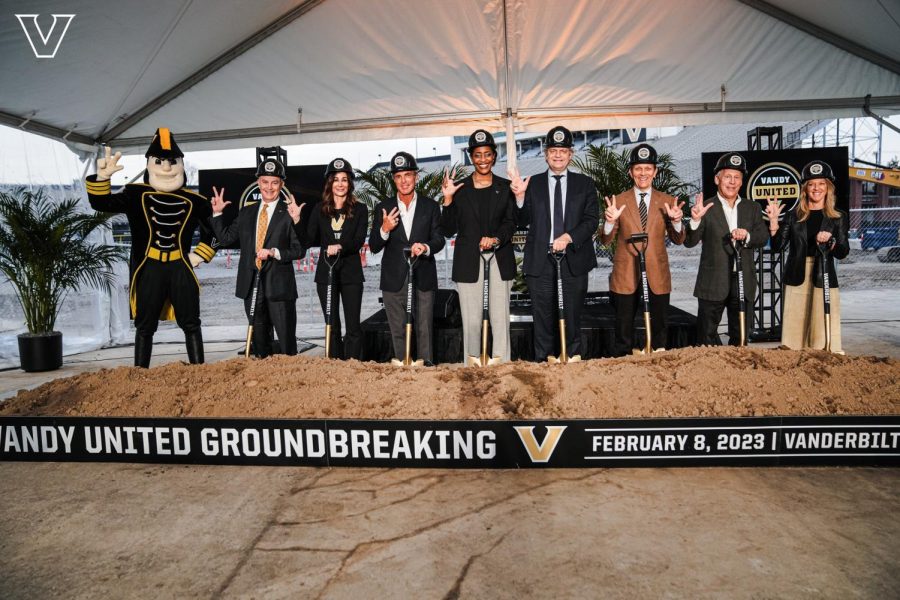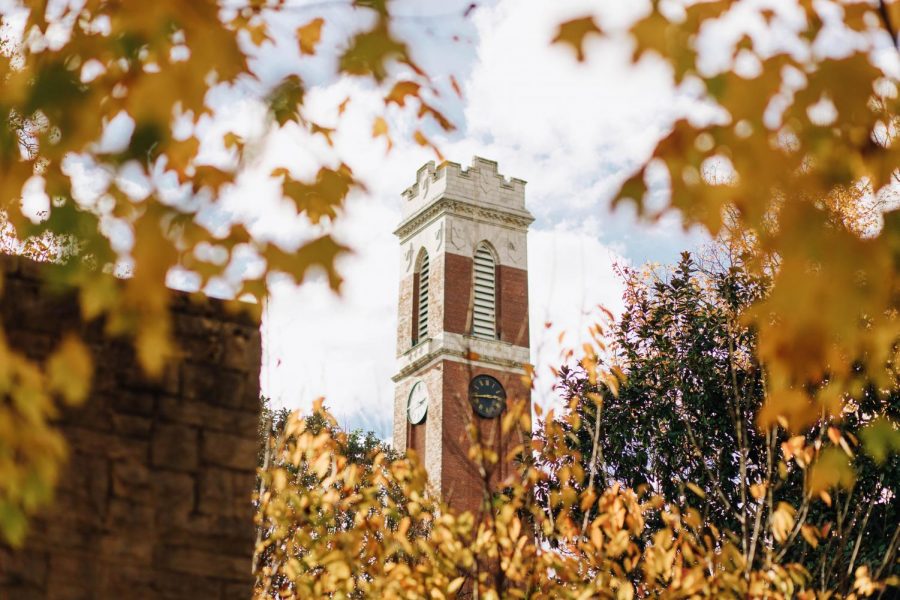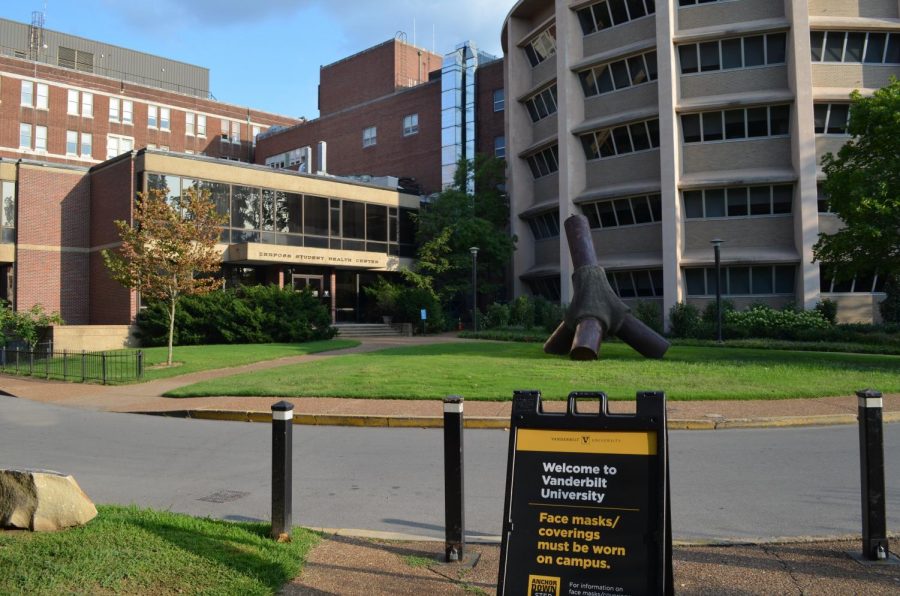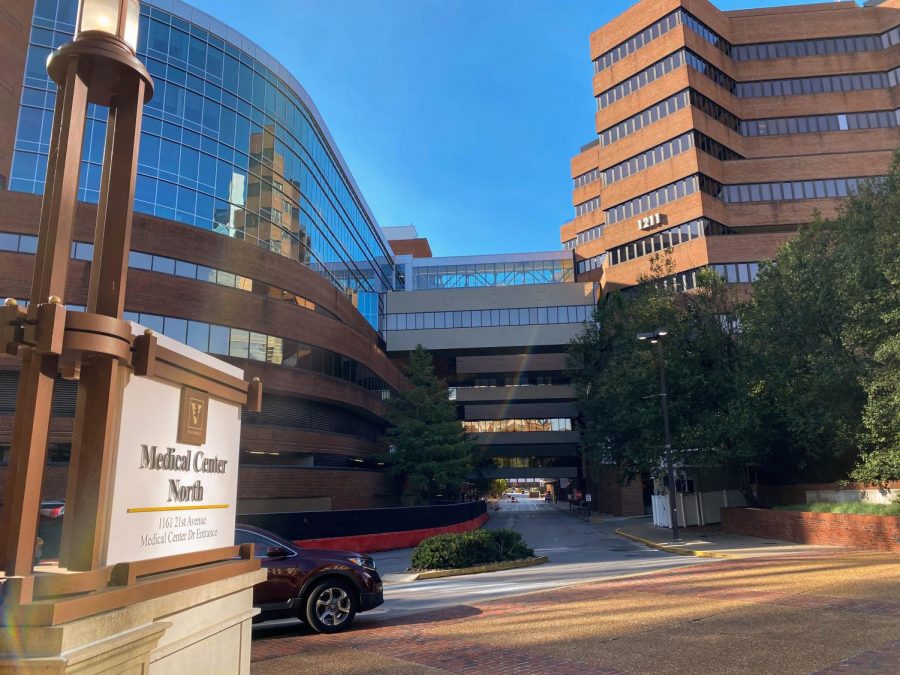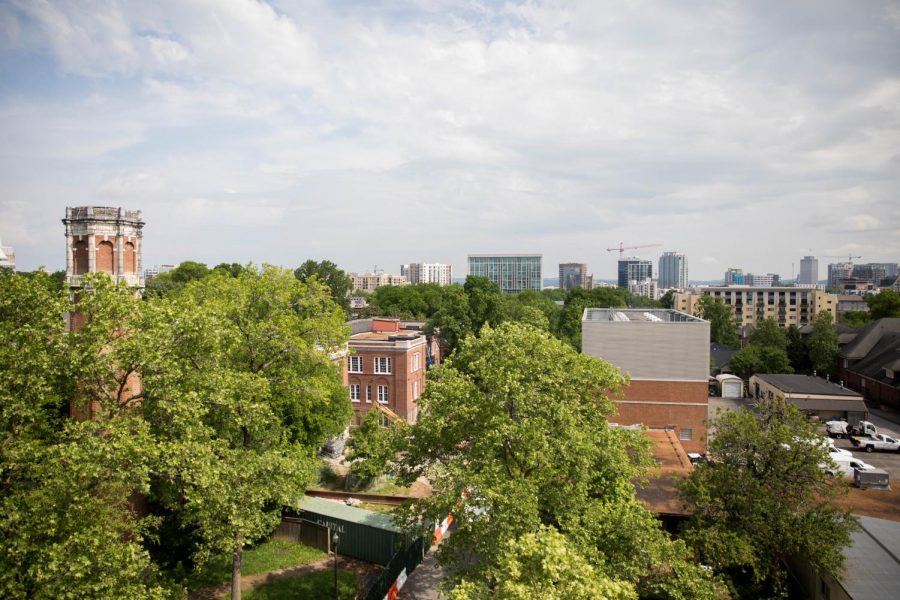Former University of Chicago Provost Daniel Diermeier began his term as Vanderbilt’s ninth chancellor on July 1, 2020. After following Chancellor Emeritus Nicholas S. Zeppos, Diermeier has started his term with the message of “one Vanderbilt, one purpose.”
The Hustler met with Diermeier over Zoom to talk about the community response to COVID-19, policing on campus and his vision for Vanderbilt’s future.
The Hustler: You’ve dropped into a couple virtual classes recently. What do you think [of the experience]?
Chancellor Daniel Diermeier: I just came from the School of Nursing in this simulation lab, which was great, where they’re working with mannequins to practice what they’re learning. I probably have been to nine or ten so far. I did a virtual one this morning. So, I’m trying to make the rounds and see how things are going.
Throughout the year, how do you plan to foster the relationship between students and the Office of the Chancellor?
There are many different ways in which I’m planning to connect. Obviously, the COVID-19 situation makes it a little bit more challenging.
Some of these things are official ways to do it like our interview right now or with student government. But, my plan is also to just walk around, talk with students, and I’ve been doing that informally. I think that’s an important part as well so that I get a sense of what daily life is like and that it’s not always only doing it through the official channels, so to speak.
Were you disappointed to start your new role as chancellor during such a turbulent summer, or did you enjoy the challenge?
I got a lot of emails from friends and colleagues that say ‘Oh my god, we’re so sorry. You have to step into your new role in such a difficult circumstance,’ but that’s really not the way I’ve been thinking about it. My view is that when you have the privilege of leading and distinguished institutions such as Vanderbilt, an important institution with a great mission, you want to be able to make a difference. You want to be able to have impact.
My view is that when you have the privilege of leading and distinguished institutions such as Vanderbilt, an important institution with a great mission, you want to be able to make a difference. You want to be able to have impact.
— Chancellor Daniel Diermeier
So, when I look at this, I think, no better time to have an impact in the history of Vanderbilt than during, arguably, some of its most challenging times. I think that it’s a great privilege to have the opportunity to be the chancellor during these difficult times. It means long hours, means long days, means having to deal with unexpected challenges.
I said this yesterday on a phone call. If you’re the prime minister of Britain, you want to be [it] from ‘40 to ‘45, not from ‘50 to ‘55. Because when you have the chance to be in a role of leadership, you want to be able to make a difference.
Some students have been concerned about discrepancies between on- and off-campus regulations and protocols, and they’re also concerned about those regulations resulting in online learning. What’s the university’s gameplan in those possible futures? Would the protocols be lessened if those metrics got better? And what are those metrics that we’re looking at specifically?
We wanted to make sure that all students could be invited to come back to campus, one. And number two, that we could accommodate their residential preferences to the extent possible. We were fortunate enough that we had enough capacity in residence halls to make that feasible. And so every student that wanted to live on-campus in a single room was able to do that, and then some that wanted to live off-campus could do that in whatever their living arrangements were. And then we had students who either chose to be online or, for various reasons, health or travel restrictions, were unable to join us in person.
The second piece was flexibility. Our plan has been based on the fundamental belief, which I think has been validated, that there is profound uncertainty here. Things will change. We have asked our faculty fundamentally to develop in-person instructions, online options and then hybrid versions, so we could shift back and forth between these different modalities as circumstances necessitate.
And then the third piece is every decision we’re going to make is going to be driven by the best scientific and public health data that we have available at the time. That’s changing, too. So, as we learn more about the disease, and as we learn more about what the drivers and some factors are, that’s changing as well. What that means for us is that any decision that we would make would be driven by these underlying metrics now. It’s impossible to anticipate all possible contingencies, but we have certain guidelines that we have in place.
For example, it’s possible for us that if there’s a particular outbreak or hotspot in one particular college to say, ‘Okay, this part of the university may go into a virtual setting for a couple of weeks while everything else can continue.’ So, there’s a lot of flexibility that allows us to go big back and forth on that. And we can focus on a particular residence hall, so there’s a whole variety of different ways of how we would do that.
What we would look at in terms of key criteria would be: do we have enough quarantine and isolation capacity? At this point, we have plenty. Is there enough hospital capacity? Plenty. Do we see very rapid changes in transmission rates, or positivity rates, and again, that can be in particular areas? That’s something we would want to look at.
As students have returned back to campus, they have noticed and voiced some concerns about in the feeling of community on campus. What is your message to students who are struggling to get through these new and unprecedented challenges to campus life?
It’s a new and unprecedented situation for everyone. It’s a semester unlike any other. This is the biggest challenge that we’re facing as a country and as the world since the second world war. So, it’s natural that we will have to adapt to that, and we do have to make some changes. Certain traditions that we are used to and look forward to every year, we just can’t do the same way. For example, Founders Walk we had to do online.
So, what I would say is, number one, that we have asked, we put a lot of trust in our students. I’ve said this before, and I’ll say it again, this plan will succeed or fail based on the choices that our students are making. Our core principles will be the same. We’re committed to a great education, whether you’re on campus or whether you do it remotely, but it will require people to adapt and to think about new ways in which we connect, socialize and so forth.
What was your initial reaction to that reported 50 to 200 student gathering at Commons, and did you feel like that gathering changed how you felt that students have responded to the protocols?
As we all know, we had a case where the policies and the procedures were not followed appropriately.
We dealt with it. I did not think that it was anything that was a dramatic or major incident. I don’t think so. I think it was something where it was the weekend, and they had pods of ten and then there were more. It wasn’t done properly. We addressed it. And I think that’s that. And I think people will learn, they’ll adapt and they will learn what’s appropriate and what’s not appropriate.
I have been super impressed by the students so far. And I’m particularly impressed because I’m paying attention to what’s happening at other universities. And our students have stepped up. Just if you walk around campus, I see total compliance with masking [and] with social distancing. We just haven’t had anything that gives me a lot of headaches or a lot of concerns. The gathering incident was inappropriate, but we dealt with it. It wasn’t anything like I’ve seen or heard. You’ve probably heard what was going on at other universities. So, I think our community is doing well.
To follow up on that, other universities like the University of South Carolina and the University of Illinois at Urbana-Champaign had a lot of cases recently. Does that concern you about potential cases here, or does that encourage you in terms of how well we’re doing?
You mentioned those cases, and the University of North Carolina [at Chapel Hill] was another example like that. Yes, it’s worrisome, and it’s concerning. And what it shows you is that things can take a turn for the worse very quickly.
What gives me confidence is that I know how good our plan is. I would argue, and I’ll take that debate any day, that I think we have the best plan in higher education. We did not have to put restrictions on which students could and couldn’t come. We have extremely effective testing and contact tracing capabilities in large part because of our collaboration with the Medical Center, especially the School of Nursing. They know what they’re doing. We have now moved to weekly testing, which is another step in the right direction.
After that Commons gathering on August 29, students are wondering about Vanderbilt’s use of VUPD and Student Accountability’s disciplinary measures. How has Vanderbilt navigated the use of VUPD in relation to student accountability?
I’m very proud of the work that VUPD has been doing. And they have been a great and important partner. It’s important that people follow the rules. My sense is that the overwhelming, large majority of students are doing the right thing and want to do the right thing, but sometimes they may not quite know. Well, you know, in a particular case, they may need to be reminded of something. But of course, we also have to enforce the rules. That’s important.
Vanderbilt University Public Safety plays an important role. They are there for the safety of our students, faculty and staff. They are absolutely supporting the university’s efforts to achieve compliance with the policies and protocols to reduce the spread of COVID-19. And they’re prepared to issue citations and to refer people to Student Accountability, particularly if they are engaging in reckless conduct. So, they’re a partner. They play an important role and I think they’ve been doing it very well. They understand our students, and they understand what it means to operate in the university community, and so on.
How does Vanderbilt plan on addressing student concerns about Greek life in light of racism, sexism and other problems within that particular system?
At Vanderbilt, Greek fraternities and sororities and a variety of other institutions are student-led, so fundamentally, that means that these are opportunities for our students to participate in leadership opportunities to get together and work things through in their own communities.
Having said that, that also means that everyone who is participating in Greek life is expected to [make] a commitment to a safe, welcoming and inclusive campus and to be consistent with university standards and policies in general. If that’s not the case, there are accountability consequences for that. And, as you know, that may mean that you as a Greek organization can be suspended, or you can be subject to individual issues related to Student Accountability.
Now, students have the right to have debates and should be encouraged to have debates on the purpose of Greek life, whether to join, whether to disaffiliate or how to conduct yourself in this case. There are many debates also between chapters and national organizations, and that’s all healthy and good. What’s important to us is that these debates are done respectfully, and that we remind ourselves that we’re all part of one community and treat each other accordingly.
What spurred the August 31 change in the COVID dashboard?
There will constantly be adaptations, and I don’t think that’s going to be the last change. What we’re trying to do is have a better understanding of how to structure the data, how to report that and how to contextualize it appropriately as we’re getting more information on that.
We always will continue to ask ourselves: how do we present the data in a more informative way? So, in this particular way, we felt it was useful to provide daily data because, as you can see, it gives you a sense of the tremendous variation that’s going on. And you just don’t see that so much when you only look at weekly data. This is something that we learned. We could see that after we had a couple of weeks of data, and so we decided to move in that direction.
We recently published a guest editorial from the Vanderbilt AAUP where they stated that “instructors are only guaranteed the option of online teaching, if they qualify for disability accommodation.” In the wake of campus response to COVID-19 protocols, do you believe that this option could change, and why is this the university’s current policy?
Our mission is to have a transformative education for our students in an environment where we protect the health and safety of our staff and our students as much as we can.
So, what that required us to do—and that is the way we have been thinking about teaching and education in general—is that these decisions are best made locally. The Law School will have a different point of view on this than the School of Nursing. And the Business School will do differently than the School of Engineering because they understand better how they provide the transformative education that they’re committed to. The thought to have uniform, general rules seemed unnecessary and counterproductive.
We took the path that we’ve always been taking at Vanderbilt, which means that we’ll work it out based on what’s best for the students and for the faculty, and if there are issues, we’ll talk through them. That’s the way we’ve been doing it. I think the result has been great, but that doesn’t mean that everybody agrees all the time. Of course not: it’s a university, so people have different points of view, and we work through that.
In the past, we’ve had chancellors teach classes. Do you anticipate teaching a class? And if so, what would you want it to be?
It’s a great thing, and I’m toying with that idea. Right now, it’s out of the question because there is a national emergency that we have to deal with. But, I love teaching, and I’ve always been committed to teaching. I really enjoyed it. So, let me put it this way: I like this. I want to find a way to do it, but how exactly it’s going to be structured, I just haven’t had a moment to think about yet.
Where do you hope we are at the end of this year?
What I want us to do when we’re at the end of this academic year is to look back with pride. I want us to look back at this and say, ‘We worked hard to make this work as a community.’ We will look back at this year, which will be one of the most extraordinary years of our lives, whether you’re a little older or a little younger, and I want us to look at this with a sense of, ‘In twenty years from now, I look back at this year, and I feel proud for what I’ve done.’
Content has been edited for length and clarity.











